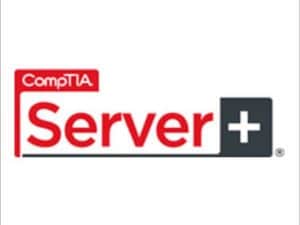IT infrastructure is essential to every business’s functioning and serves as the cornerstone for IT operations. There will soon be an infrastructure modernization as innovative technologies gain traction. Furthermore, infrastructure security is critical since new threats often arise.
In addition to supporting and managing network and data center operations, IT professionals working in infrastructure roles now need to be able to safely manage these essential components in on-premises and hybrid environments.
Should you wish to pursue a profession in infrastructure, you might already be acquainted with CompTIA Server+ (SK0-005). The CompTIA Server+ certification is a worldwide IT credential that guarantees individuals who install, maintain, and troubleshoot servers can work effectively in any setting.You might be surprised to learn, though, about the precise positions you can obtain after receiving a CompTIA Server+ certification.
Let’s examine more closely how CompTIA Server+ holders are qualified for the following IT infrastructure positions:
- Administrator of systems
- Technician for data centers
- Administrator of the server
- Administrator of the network
- Technician for field services
Which Skills Are Included in CompTIA Server+?

First, let’s examine how CompTIA Server+ trains IT professionals for these roles. CompTIA Server+ is the only server certification that is not platform-specific and is vendor neutral, like all other CompTIA certifications. Additionally, CompTIA Server+ is good for life (GFL), meaning you don’t need to renew it after you obtain it.(However, we always advise obtaining further training and certifications to keep your abilities up to date!)
A candidate should be able to perform the following tasks in order to succeed in any of the positions mentioned above:
Install, set up, and maintain server operating systems and hardware.
Put in place suitable security and hardening measures for servers.
Diagnose and fix typical server issues
Show that you comprehend the fundamentals of backup, high availability, and disaster recovery.
The CompTIA Server+ exam covers these skills precisely, and this is no accident. (Download the exam objectives for free to see them for yourself.) Hiring managers are increasingly seeking for CompTIA Server+ certification, which validates the abilities required to remotely administer both physical and virtualized servers while reflecting the industry’s adoption of cloud-based solutions.
Five Jobs That CompTIA Server+ Could Lead To
A CompTIA Server+ certification could make you a good fit for any of the following in-demand positions. See how the work duties correspond to the CompTIA Server+ exam domains by reading on.
1. Administrator of Systems
A career as a systems administrator, or sysadmin, may be right for you if you enjoy managing and maintaining enterprise application systems and information systems (IS) infrastructure while assessing, suggesting, and putting security enhancements into practice.
The following tasks can be performed by a sysadmin to install, configure, upgrade, or troubleshoot corporate software and network and wireless technologies:
- Confirming that the company’s software and hardware are operating as intended
- Installing every program required to keep the company running
- Updating software whenever a new version is released
- Preserving user access and accounts
Employers can see that you can accomplish these exact tasks securely by taking CompTIA Server+.
As an illustration, candidates for Domain 2.0 Server Administration must be able to perform all of the aforementioned tasks in addition to summarizing the fundamentals of virtualization and its function, explaining the significance of asset management, documentation, and licensing principles, and explaining the essentials of high availability for servers.
The surge in demand for systems administrators over the past few years is not surprising. You will receive compensation for your expertise. The U.S. Bureau of Labor Statistics (BLS) reports that the average yearly salary for systems administrators is $84,810.
2. Technician for Data Centers
A variety of technical services are offered by data center personnel to an organization’s data center. In addition to assisting in making sure the servers are constantly operating without hiccups, data center specialists also assist in troubleshooting and identifying solutions to prevent significant downtime.
The following tasks can be performed by a sysadmin to install, configure, upgrade, or troubleshoot corporate software and network and wireless technologies:
- Confirming that the company’s software and hardware are operating as intended
- Installing every program required to keep the company running
- Updating software whenever a new version is released
- Preserving user access and accounts
Employers can see that you can accomplish these exact tasks securely by taking CompTIA Server+.
For instance, candidates must be proficient in all of the aforementioned tasks in addition to deploying and managing storage and carrying out server hardware maintenance under Domain 1.0 Server Hardware Installation and Management.
A company’s data center is incredibly valuable when it comes to operations. Because of this, data center technicians may expect to make an average of $70,500 per year, according to the BLS.
3. The administrator of the server

A job as a server administrator can be an excellent fit for you if you’re a meticulous thinker with strong process and maintenance monitoring skills.
In addition to overseeing an organization’s servers, a server administrator makes sure that everything runs well by performing the following duties:
- Establishing new user accounts, retrieving forgotten passwords, and protecting data
- Creating and executing standard operating procedures for network maintenance
- Identifying and fixing issues with hardware and networks
- Ensuring frequent updates for security firewalls
- Delivering reports on a regular basis to management
Employers can see that you can accomplish these exact tasks securely by taking CompTIA Server+.
For instance, candidates must be proficient in Domain 3.0 Security and Disaster Recovery and be able to describe the significance of backups, restores, and disaster recovery in addition to data security threats and mitigation techniques.
IT professionals in this position need to keep up with the latest developments in technology in order to be able to deal with new hardware and software and suggest changes and enhancements. And you’ll receive compensation for your expertise. Server administrators can make an average of $84,810 per year, according to the BLS.
4. System Administrator
Network administration can be a smart career move for you if you enjoy managing systems and resolving connectivity problems.
The following are some ways a network administrator helps the internal servers of the company:
- Setting up and maintaining hardware systems and networks
- Identifying and fixing problems with connectivity
- Ensuring that users can only view the files that they are authorized to access
- Keeping an eye on the network to ensure availability and speed
- Overseeing the network’s backup mechanisms
Employers can see that you can accomplish these exact tasks securely by taking CompTIA Server+.
For instance, candidates must be able to perform all of the aforementioned tasks as well as configure and maintain server features and functionalities in order to be eligible for Domain 2.0 Server Administration.
Network administrators may also be in charge of supporting other networked devices in addition to desktop PCs, depending on the size of the organization. It pays to have a deep understanding of switches, routers, and networked communications, which is a must for network administrators. Network administrators can make an average of $83,510 per year, according to the BLS.
5. Technician for Field Services
You may have a passion for people and be an expert in IT. Ultimately, technology is useless if its users aren’t knowledgeable on how to use it. A career as a field service technician can be a good fit for you if you enjoy helping people and technology.
In the field, a field service technician is in charge of examining, diagnosing, and resolving technological problems. Typically, this position provides the following types of support to end users or external clients:
- Seeing how clients describe their PC issues
- Posing inquiries to accurately identify the issue
- Guiding clients through the suggested processes for fixing problems
- Configuring or fixing devices connected to computers
- Instruction in the usage of new computer gear and software
- Recording modifications, edits, and issues
- Supplying supervisors and other team members with information
Employers can see that you can accomplish these exact tasks securely by taking CompTIA Server+.
In Domain 4.0 Troubleshooting, for instance, applicants need to be proficient in all of the aforementioned tasks in addition to theory, methodology, frequent hardware malfunctions, storage issues, operating system (OS) and software issues, network connectivity issues, and security issues.
Successful candidates for this position will have the technical know-how to assist clients with installing, maintaining, and repairing hardware and software while fostering positive customer relationships. They will also make a good living income. Field service technicians may expect to make an average of $57,910 per year, according to the BLS.
The operations of any firm depend on the effective, modern, and secure maintenance of its IT infrastructure. In order to protect sensitive data and avoid network outages, these IT experts are concentrated on operational productivity and security.
The CompTIA Server+ certification verifies that IT professionals are knowledgeable with virtualization, storage, security, and cloud and data center troubleshooting.





